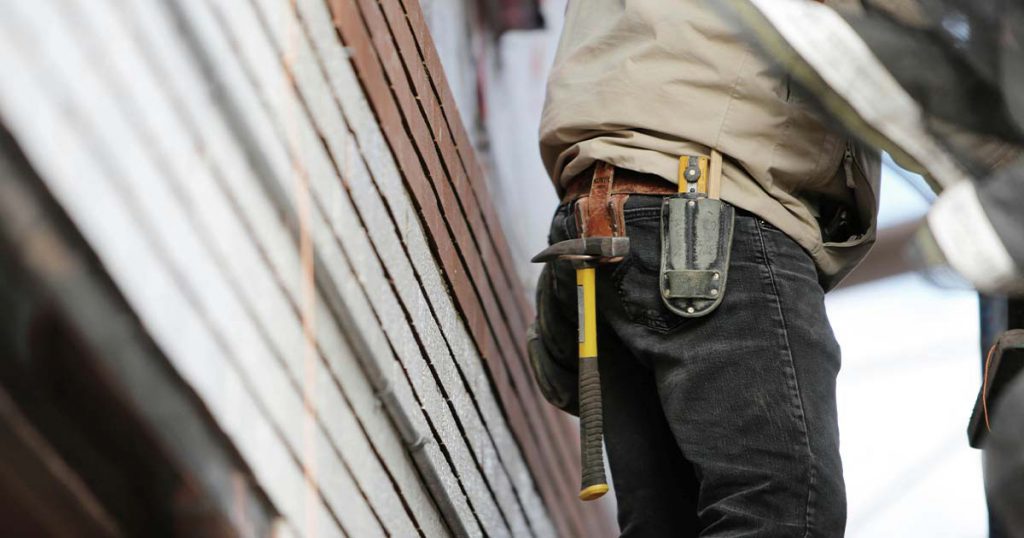
Embarking on your renting journey can be both exciting and nerve-wracking. One of the more challenging aspects? Having difficult conversations with your landlord. These conversations could be about a range of issues, including rent increases, late fees, or maintenance problems, all of which can create tension if not handled properly. Yet, these discussions are crucial for maintaining a healthy tenant-landlord relationship. Respectful and clear communication can prevent misunderstandings and build a foundation of trust. In this blog, we’ll guide you through everything you need to know about handling these tough talks, providing tips and strategies to make the process smoother and less stressful.
Difficult Conversations with Your Landlord
How to Have a Difficult Conversation
When it comes to tough topics, the most important thing is to be prepared. Start by identifying the issue clearly. Write down your main points to make sure you cover everything. This will also help you stay calm and focused during the conversation.
Timing is everything. Choose a time when neither you nor your landlord will be rushed or stressed. A relaxed environment can make a big difference in the outcome of your discussion.
Lastly, use “I” statements to express your concerns. For example, instead of saying, “You never fix anything on time,” try, “I feel stressed when maintenance issues aren’t resolved quickly.” This way, your landlord is less likely to feel attacked and more likely to listen.
What Makes You a Great Tenant?
Landlords appreciate tenants who are reliable and respectful. Paying rent on time, keeping the property clean, and respecting your neighbors can go a long way. If you’ve been a model tenant, don’t hesitate to bring this up during your conversation. Highlighting your positive track record can make your landlord more willing to negotiate and address your concerns.
Late Rent Notice

Late Fee for Rent
Life happens, and sometimes you might miss a rent payment or send it a few days late. If you receive a late rent notice, don’t panic. The first step is to communicate with your landlord. Explain why your payment is late and when you can make it. If possible, try to pay at least a portion of the rent to show good faith.
Most leases include a clause about late fees. These fees can add up quickly, so it’s crucial to address the issue as soon as possible. If this is a one-time occurrence, you can ask your landlord if they’d consider waiving the fee. However, be prepared for them to say no.
Questions to Ask Your Landlord About Late Fees:
- What is the exact amount of the late fee?
- Is this fee in line with what is stipulated in the lease agreement?
- Can you provide a breakdown of how the late fee was calculated?
- Is there a grace period for late payments?
- Can the late fee be waived or reduced?
- What are the payment options available to settle the late fee and overdue rent?
- Will this late payment affect my tenancy status?
- Can we set up a payment plan if I am unable to pay the full amount immediately?
Asking these questions can help you navigate the situation with more clarity and possibly find a solution that works for both you and your landlord.
Rental Maintenance

Maintenance Repairs
Maintenance issues are common in any rental property. When you notice a problem, report it to your landlord immediately. Provide photos if possible and be specific about the issue. For example, instead of saying, “The sink is leaking,” try, “The kitchen sink has been leaking since Tuesday, and it’s causing water damage to the cabinet.”
Keep a record of your communication. If the repair isn’t addressed in a reasonable time, you may need to follow up or escalate the issue. Remember, your landlord is legally obligated to maintain the property in a habitable condition.
Questions to Ask Your Landlord About Rental Maintenance
- What is the procedure for reporting maintenance issues?
- How quickly can I expect a response after reporting a problem?
- Is there a designated emergency contact for urgent maintenance issues?
- What is the typical turnaround time for non-urgent repairs?
- Do you use licensed and insured contractors for maintenance work?
- Is there a maintenance schedule for routine checks, such as HVAC servicing or pest control?
- How should I prepare the area that needs maintenance before a contractor arrives?
- Who is responsible for the cost of repairs if the damage is not due to tenant negligence?
- Can I request updates on the status of my maintenance request?
- What should I do if I am not satisfied with the repair work?
Rental Costs
Rent Increase Letter
Receiving a rent increase letter can be frustrating, especially if it feels unjustified. Before reacting, review your lease to understand the terms regarding rent increases. In many places, landlords must give advance notice before raising the rent.
Once you’ve reviewed your lease, reach out to your landlord to discuss the increase. If you feel the new rent is too high, present your case calmly. You can mention comparable rental rates in your area or your history as a reliable tenant. Sometimes, landlords may be open to negotiation, especially if they value you as a tenant.
Questions to Ask Your Landlord About Rental Increases
- What is the reason for the rent increase?
- How much notice is required before the rent increase takes effect?
- Is the rent increase within the legal limits set by local rent control laws?
- Are there any improvements or upgrades planned for the property that justify the increase?
- Can you provide a breakdown of how the new rental rate was determined?
- Are there any amenities or services included in the new rent that were not available before?
- Is this rent increase negotiable?
- Can we sign a longer lease term to avoid future rent increases?
- How does the new rent compare to similar properties in the area?
- Will the rent increase affect other terms of the lease, such as maintenance responsibilities or utility payments?
Security Deposits

Security Deposit for Rental
Your security deposit is a significant amount of money and getting it back can be a concern for many renters. To ensure you get your full deposit back, document the property’s condition when you move in. Take photos and note any pre-existing damage in writing.
When you decide to move out, give your landlord proper notice as specified in your lease. Clean the property thoroughly and repair any minor damages you may have caused. Request a final walkthrough with your landlord to address any concerns right away.
Questions to Ask Your Landlord About Your Security Deposit
- What is the process for returning the security deposit?
- How long after moving out can I expect to receive my deposit?
- What are the conditions for the full refund of the security deposit?
- Can you provide an itemized list of potential deductions from the deposit?
- What kind of documentation or evidence will you need regarding the property’s condition at move-out?
- Is there an opportunity for a pre-move-out inspection to identify potential issues?
- How should I provide my forwarding address for the deposit return?
- Will interest be paid on the security deposit, and if so, how is it calculated?
- What should I do if I disagree with the deductions made from my security deposit?
- Who should I contact if I have not received my deposit within the expected timeframe?
The Next Step
If you’ve tried to resolve an issue with your landlord and haven’t had any luck, it might be time to take the next step. This could involve seeking mediation or legal advice. Many communities offer free or low-cost mediation services to help tenants and landlords resolve disputes.
In some cases, you may need to consult an attorney who specializes in tenant rights. They can provide you with information about your legal options and help you decide the best course of action.
Having tough conversations with your landlord isn’t easy, but it’s a necessary part of being a responsible tenant. By preparing thoroughly, communicating openly, and knowing your rights, you can handle these talks with confidence. Remember, your goal is to find a solution that works for both you and your landlord, ensuring a positive renting experience.
If you’re looking for more tips and resources on managing your rental experience, consider booking a call with one of our expert advisors. We’re here to help you every step of the way.
Using CubeSmart During Your Next Move
Moving out of your rental can be an overwhelming process, but CubeSmart can simplify your experience with their versatile storage solutions. Whether you need a temporary place to store your belongings during the transition or a long-term solution for items that won’t fit in your new home, we offer a variety of unit sizes and climate-controlled options to meet your needs. Our convenient locations and flexible rental terms make it easy to find a storage space close to your new rental.









